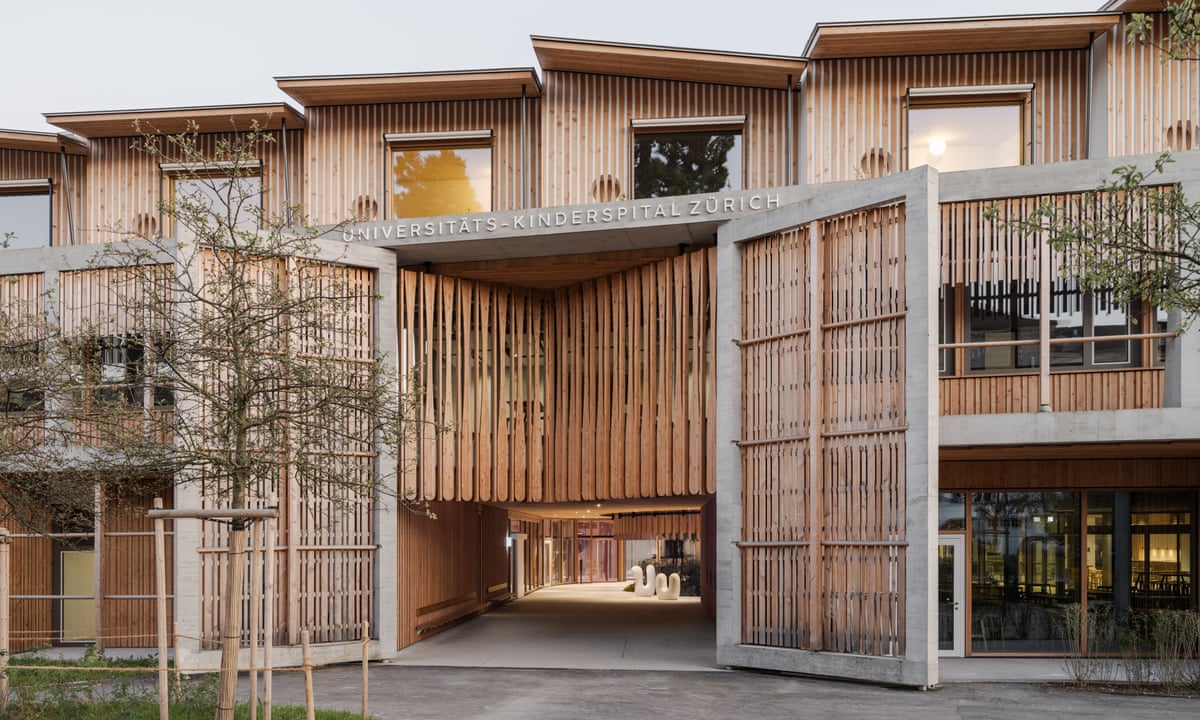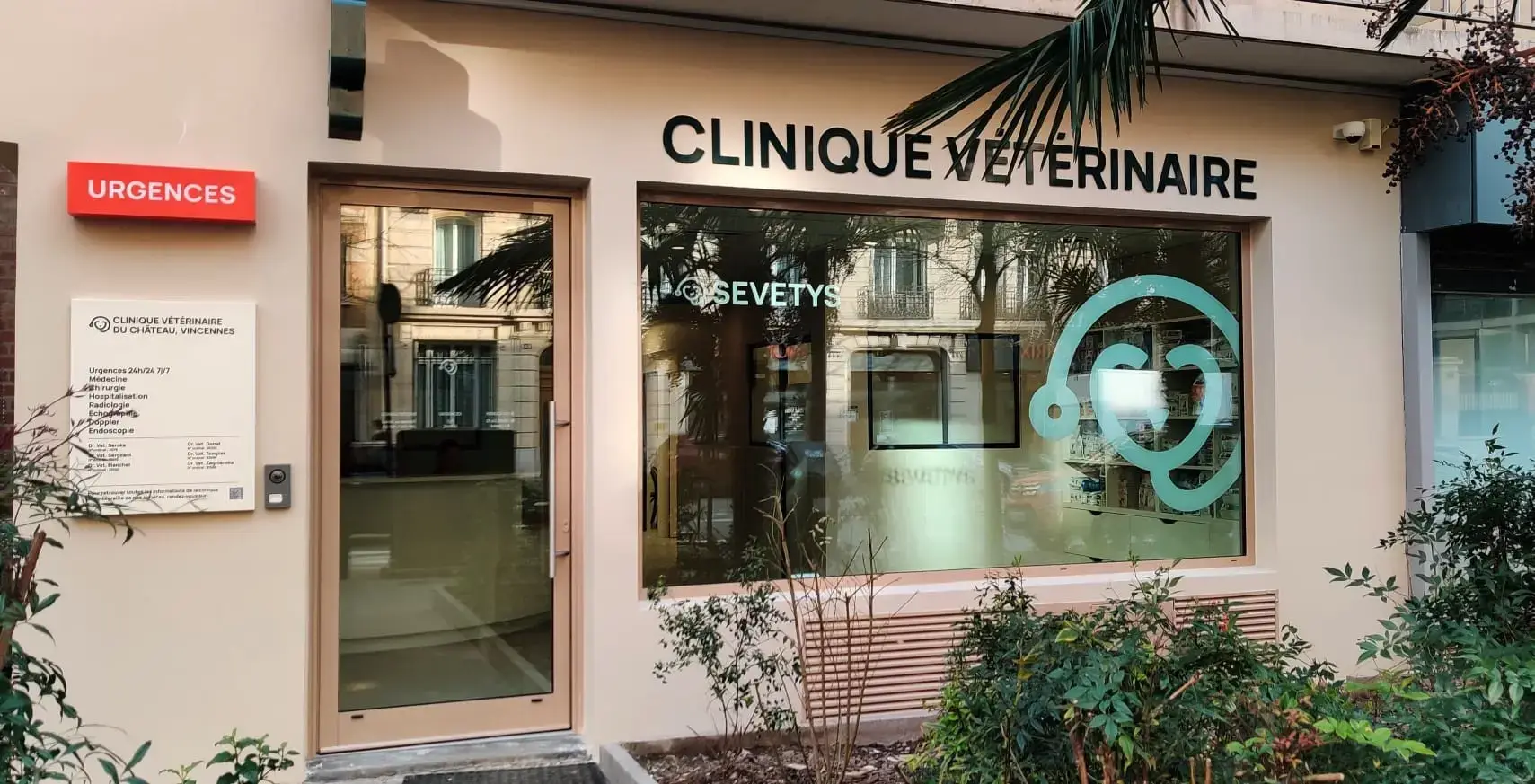When it comes to ensuring the best care for children, healthcare professionals across Europe seek effective strategies for locating the best pediatric clinics in Europe. This guide, “Where to Find the Best Pediatric Clinics in Europe for Your Children,” offers valuable insights into identifying top-rated pediatric clinics for children in Europe. As child healthcare becomes increasingly vital, understanding the nuances of pediatric healthcare options in Europe is essential. The post delves into various criteria for assessing top pediatric healthcare facilities for children in Europe, and explores the importance of finding pediatric specialists in Europe. Moreover, it covers essential aspects such as reviews, ratings, and the benefits of networking with top pediatricians for kids in Europe. With a focus on practical tips, this guide empowers healthcare professionals to facilitate and enhance children’s healthcare in Europe, ensuring that every child receives quality care through finding pediatric care for kids in Europe.
Understanding Pediatric Healthcare in Europe
Pediatric healthcare in Europe encompasses a wide array of services dedicated to the health and well-being of children, from infancy to young adulthood. This sector plays a crucial role in ensuring that young patients receive the appropriate medical attention, preventive care, and specialized treatments suited to their developmental needs.
Key Components of Pediatric Healthcare
- Primary Care: Clinics usually provide essential primary care services, including annual check-ups, vaccinations, and growth assessments.
- Specialized Services: Many Top Pediatric Healthcare Facilities for Children in Europe offer specialized services, such as allergology, endocrinology, and neurology, addressing complex health issues that require expert attention.
- Preventive Care: Emphasis on preventive measures such as nutritional guidance, mental health, and wellness programs are crucial in maintaining optimal health among children.
Regulatory Framework
Pediatric healthcare in Europe is governed by strict regulations and guidelines that ensure quality and safety. The European Union implements comprehensive health policies that require member states to uphold high standards in facilities and practitioner qualifications. Some of the key regulatory aspects include:
- Specialized Training: Pediatricians are required to undergo additional training beyond general medical practices to cater specifically to child health.
- Accreditation: Clinics undergo rigorous accreditation processes to ensure facilities meet the benchmarks set for pediatric care.
Finding Pediatric Care for Kids in Europe
Healthcare professionals seeking to understand Children’s Healthcare Europe must be aware of various Best Pediatric Clinics in Europe. Factors such as the clinic’s location, available specialists, and patient reviews can significantly influence the choice of care:
- Location: Access to care varies widely, especially in urban versus rural settings. Major cities usually house the Top Pediatrician for Kids in Europe due to concentrated resources.
- Cost and Insurance: Understanding the costs associated with pediatric care and the types of health insurance accepted by clinics can greatly affect accessibility for families.
In summary, Finding Quality Child Healthcare in Europe involves navigating through these essential aspects. Pediatric healthcare systems promote a holistic and concentrated approach to children’s health, ensuring they grow into healthy, thriving adults. Exploring clinic options and understanding local pediatric services can empower healthcare professionals to provide informed recommendations to families seeking the best care for their children.

Criteria for Assessing Pediatric Clinics
When it comes to evaluating Top Rated Pediatric Clinics for Children in Europe, healthcare professionals must consider several criteria to ensure the clinics meet the needs of young patients effectively. The following key points serve as a guideline for assessing quality in pediatric healthcare facilities.
1. Accreditation and Certification
- Verify that the clinic possesses relevant accreditations, such as those from national healthcare authorities or international organizations like the Joint Commission International (JCI). Accredited clinics often maintain higher standards for patient safety and care.
2. Clinical Experience of Pediatric Specialists
- Assess the qualifications and experience of the pediatricians and specialists associated with the clinic. Look for certifications in pediatrics, sub-specialties, and a track record of pediatric care.
3. Availability of Advanced Technology
- Evaluate the technological capabilities of the pediatric clinic. Facilities equipped with modern diagnostic tools, treatment equipment, and electronic health records tend to enhance the overall quality of care.
4. Parent and Patient Feedback
- Consider reviews and ratings from parents and guardians. Patient testimonials can provide invaluable insights into the clinic’s environment, staff professionalism, and the overall experience.
5. Accessibility and Location
- Assess whether the clinic is conveniently located and easily accessible for families. Consider factors such as transportation options and parking availability, which can significantly affect a visit.
6. Range of Services Offered
- Examine the variety of pediatric healthcare options available at the clinic. A comprehensive service offering—including routine check-ups, emergency care, vaccinations, and specialized treatments—can be an indicator of quality.
Quick Reference Table: Criteria for Assessing Pediatric Clinics
| Criteria | Description |
|---|---|
| Accreditation | Relevant certifications from accredited organizations |
| Clinical Experience | Qualifications and experience of pediatric specialists |
| Advanced Technology | Availability of modern diagnostic and treatment equipment |
| Parent Feedback | Testimonials and reviews from patients and families |
| Accessibility | Location convenience and ease of access |
| Range of Services | Varied healthcare options for children |
By applying these criteria, healthcare professionals can effectively evaluate Finding Quality Child Healthcare in Europe. Furthermore, these factors can guide parents as they search for the Best Pediatric Clinics in Europe, ultimately ensuring their children receive the highest standard of care.
Top Rated Pediatric Clinics for Children in Europe
When seeking healthcare for children, it is crucial to identify the best pediatric clinics in Europe that offer exceptional services. This allows parents and healthcare professionals to ensure comprehensive and effective care. Here is a detailed overview of some of the top pediatric healthcare facilities for children in Europe:
Notable Options Across Europe
| Clinic Name | Location | Specialties | Ratings |
|---|---|---|---|
| Great Ormond Street Hospital | London, UK | Oncology, Surgery | 4.9/5 |
| Charité – Universitätsmedizin Berlin | Berlin, Germany | Cardiology, Neurology | 4.8/5 |
| Children’s Hospital of Amsterdam | Amsterdam, Netherlands | General Pediatrics | 4.7/5 |
| Bambino Gesù Hospital | Rome, Italy | Genetics, Endocrinology | 4.8/5 |
| Hospices Civils de Lyon | Lyon, France | Respiratory Disorders | 4.6/5 |
This table highlights some of the leading clinics, showcasing their specialties and ratings, which set benchmarks for quality care.
Key Attributes of Top Rated Clinics
These clinics stand out not only for their excellent medical services but also for their commitment to creating a child-friendly environment. Some important characteristics include:
- Highly Qualified Staff: The best pediatric clinics employ experienced pediatricians who specialize in various areas, making it easier to find top pediatricians in Europe suited for specific conditions.
- State-of-the-Art Facilities: Advanced technology and equipment increase diagnostic accuracy and treatment effectiveness.
- Child-Centric Design: Fun and engaging environments help to reduce anxiety for young patients.
- Comprehensive Services: From routine check-ups to specialized treatments, these clinics often provide a complete range of pediatric healthcare options in Europe.
Why Location Matters
It’s essential for healthcare professionals and parents to consider the location of top pediatric clinics in Europe. Proximity can enhance accessibility during emergencies, while also ensuring that specialized care is readily available.
For example, clinics located in major urban centers like London, Berlin, and Paris typically offer advanced services due to their comprehensive networks and resources.
In summary, identifying best children’s health centers in Europe involves evaluating clinics based on their services, staff qualifications, and overall child-friendly atmospheres. As one healthcare professional stated, “Choosing the right clinic is not just about location; it’s about finding a place where children feel safe and are treated with compassion.”
These factors are vital in finding pediatric care for kids in Europe and ensuring that children receive the best possible healthcare tailored to their unique needs.
Finding Pediatric Specialists in Europe
Locating qualified pediatric specialists is crucial for ensuring the optimal health and well-being of children. With a plethora of options available, healthcare professionals need to be equipped with the right tools and knowledge to navigate this landscape effectively. Here are some practical steps and resources to streamline the search for Top Pediatricians in Europe.
Key Resources for Finding Pediatric Specialists
- National Medical Directories: Most European countries maintain a directory of licensed healthcare providers. These can typically be accessed online, often providing details such as specializations, credentials, and patient reviews.
- Referral Networks: Engaging with local hospitals or clinics can be crucial. Many institutions have referral systems in place, connecting patients with specialists based on their specific needs.
- Online Healthcare Platforms: Websites such as Healthgrades and Zocdoc facilitate the search for top pediatricians for kids in Europe. These platforms often include patient ratings and detailed reviews, helping professionals make informed choices.
- Professional Medical Associations: Organizations like the European Academy of Paediatrics (EAP) provide directories for pediatric specialists. Membership can offer access to a network of experienced professionals across Europe.
Pediatric Specialty Areas to Consider
When searching for finding pediatric specialists in Europe, it’s essential to understand the different subspecialties available:
| Specialty | Description |
|---|---|
| Pediatric Cardiology | Focuses on heart conditions in children. |
| Pediatric Gastroenterology | Deals with digestive system disorders. |
| Pediatric Neurology | Cares for neurological disorders impacting children. |
| Pediatric Endocrinology | Manages hormonal growth and metabolic issues. |
| Pediatric Rheumatology | Addresses autoimmune conditions in children. |
Tips for Locating Specialists
- Utilize Local Language Resources: Being proficient in the local language can significantly enhance the search process. Websites that offer services in the native tongue can yield more localized results.
- Networking with Professionals: Establish connections with local pediatricians and healthcare professionals who may provide valuable referrals or insights on children’s healthcare in Europe.
- Online Forums and Community Groups: Engaging in online discussions via platforms such as Reddit or specialized Facebook groups can yield personal experiences and recommendations from parents and professionals alike.
Implementing these strategies will make the task of finding quality child healthcare in Europe much simpler, aiding healthcare professionals in ensuring their patients receive the best possible care.

Pediatric Healthcare Options in Major European Cities
Europe boasts a wide array of Top Pediatric Healthcare Facilities for Children in Europe, each differentiating itself through specialized services, skilled professionals, and cutting-edge technology. By understanding the healthcare options available in major European cities, healthcare professionals can better guide families in finding the appropriate care for their children.
Pediatric Healthcare Hotspots
Here are some major European cities recognized for their exceptional pediatric services:
| City | Notable Clinics and Hospitals | Specialties Offered |
|---|---|---|
| London | Great Ormond Street Hospital | Pediatric surgery, oncology, cardiology |
| Berlin | Children’s Hospital Berlin | Neurology, gastroenterology |
| Paris | Necker-Enfants Malades Hospital | General pediatrics, infectious diseases |
| Barcelona | Hospital Sant Joan de Déu | Endocrinology, respiratory medicine |
| Amsterdam | Amsterdam UMC Pediatric Division | Neonatology, rehabilitation |
Key Services Available
When researching Finding Pediatric Care for Kids in Europe, consider the following key services that these top-rated clinics offer:
- Specialized Pediatric Care: Facilities often house units dedicated to specific health concerns, ensuring children receive targeted treatments.
- Family-Centered Care: Many clinics prioritize the involvement of families in treatment plans, recognizing the importance of familial support throughout recovery.
- Multilingual Services: Particularly in cosmopolitan cities, pediatric clinics frequently provide multilingual staff to accommodate international families.
Accessibility and Affordability
Healthcare professionals should also consider the accessibility of pediatric services in these urban centers. Major hospitals typically offer:
- Telehealth Options: Allowing initial consultations online can reduce the burden of travel for families.
- Insurance Partnerships: Understanding local health insurance networks can enable families to receive coverage for a broader range of services.
By taking stock of Pediatric Healthcare Options in Major European Cities, healthcare professionals can confidently assist families in navigating the complexities of finding quality child healthcare in Europe. Whether recommending Best Pediatric Clinics in Europe or connecting families with Top Pediatricians for Kids in Europe, knowledge of these vital resources is essential.
Reviews and Ratings of Pediatric Clinics
Understanding the quality of pediatric clinics is essential for healthcare professionals who aim to recommend the best options for families seeking care. In Europe, the landscape of pediatric healthcare can vary significantly based on location and facility reputation. Reviews and ratings play a crucial role in guiding practitioners toward trusted facilities and specialists.
Importance of Reviews
Reviews provide insight into several aspects of a clinic’s operation and patient experience, including:
- Patient Satisfaction: Evaluating feedback from parents about their children’s experiences can highlight how effectively clinics manage pediatric care.
- Quality of Care: Parents’ reviews often touch upon the professionalism and expertise of pediatricians, as well as the quality of follow-up care.
- Facility Conditions: Observations about the cleanliness, safety, and convenience of the clinic environment can be pivotal for parents when choosing care.
- Overall Accessibility: Ratings can shed light on wait times, appointment availability, and ease of communication with staff.
Where to Find Reviews and Ratings
To access reliable reviews for Top Pediatric Healthcare Facilities for Children in Europe, healthcare professionals can utilize several platforms:
- Healthcare Review Websites: Websites like Healthgrades, RateMDs, or Doctify feature ratings and reviews specifically for pediatric clinics.
- Social Media Platforms: Facebook groups or Twitter hashtags focused on family care can provide collective experiences and recommendations from various parents.
- Local Health Authorities: Many countries have governmental websites that provide rankings and quality assessments of healthcare providers, including pediatric clinics.
Comparison of Top Rated Clinics
For professionals assisting families in Finding Quality Child Healthcare in Europe, comparing ratings and reviews across multiple clinics is beneficial. Below is a simplified comparison table showcasing some of the Best Pediatric Clinics in Europe along with their review ratings from various platforms:
| Clinic Name | Location | Average Rating | Notable Services | Review Source |
|---|---|---|---|---|
| Children’s Hospital of Europe | Berlin, Germany | 4.8/5 | Pediatric oncology, emergency care | Healthgrades |
| The Great Ormond Street | London, UK | 4.7/5 | Specialized surgery, neurology | RateMDs |
| Charité – Universitätsmedizin | Berlin, Germany | 4.6/5 | General pediatrics, cardiology | NHS Choices |
| Vienna Children’s Hospital | Vienna, Austria | 4.5/5 | Neonatology, respiratory services | Yelp |
Collecting and analyzing these reviews and ratings not only enhances a healthcare professional’s ability to guide families effectively but also fosters the pursuit of quality improvement among pediatric clinics. Remember, finding pediatric care for kids in Europe necessitates thorough research to ensure parents are equipped with the best information available.
Touring Children’s Health Centers in Europe
Visiting and exploring Top Pediatric Healthcare Facilities for Children in Europe serves multiple purposes for healthcare professionals. It aids in understanding the environment where pediatric care is delivered, provides networking opportunities, and helps practitioners benchmark their own facilities against Europe’s standards.
Here are some key aspects to consider when touring Best Children’s Health Centers in Europe:
1. Facility Overview
- Design and Accessibility: Examine how user-friendly and accessible the clinics are for families. Consider whether the layout considers the needs of children and their parents.
- Equipment and Technology: Assess the advanced medical equipment available. Identify if the clinics are integrating telehealth and other innovative technologies.
2. Quality of Care
- Pediatric Specialties Offered: Look for clinics that provide diverse specialties such as cardiology, endocrinology, or developmental pediatrics.
- Patient Care Practices: Observe the patient-to-staff ratio and interaction quality between clinicians and young patients.
3. Staff Competency
- Professional Training: Review the credentials and ongoing training programs for staff. This includes any collaboration with universities or medical institutions.
- Multidisciplinary Teams: Investigate how clinics integrate specialties, including psychologists, nutritionists, and occupational therapists, into pediatric care.
4. Patient Feedback
- Collect data on previous patient surveys or feedback collected by the clinics. Patient testimonials can provide insight into the care experience at these establishments.
Sample Evaluation Table
| Criteria | Clinic A | Clinic B | Clinic C |
|---|---|---|---|
| Accessibility | Yes | Yes | No |
| Number of Specialties | 5 | 3 | 6 |
| Patient Satisfaction Rating | 4.8/5 | 4.5/5 | 4.9/5 |
| Multidisciplinary Approach | Yes | No | Yes |
5. Networking Opportunities
Engage with local healthcare professionals during your visits. These interactions provide invaluable insights into regional practices, allowing practitioners to exchange ideas and establish connections that may enhance collaborative outcomes in pediatric care.
By systematically touring and assessing these Top Pediatric Clinics in Europe, healthcare professionals can gather crucial knowledge that benefits their practice and ultimately improves the care received by children in their communities. This exploration also aids in Finding Quality Child Healthcare in Europe, ensuring better outcomes for the young patients they serve.

Health Insurance Considerations for Pediatric Care
When seeking the best pediatric clinics in Europe, an essential aspect to consider is health insurance. Navigating the complexities of health insurance can be daunting, especially for healthcare professionals tasked with guiding families. Understanding the various plans and options available for pediatric care can significantly impact the quality and accessibility of healthcare for children.
Types of Health Insurance in Europe
In Europe, health insurance coverage can largely be categorized into two main types:
| Type of Insurance | Description |
|---|---|
| Public Health Insurance | Funded by the government, providing comprehensive coverage for most medical needs, often at little to no cost to the patient. Utilized in countries like Germany, France, and the UK. |
| Private Health Insurance | Offered by various private companies, this type usually provides faster access to services and a wider choice of clinics and specialists. Useful for expatriates or families seeking luxury healthcare options. |
Key Considerations for Families
- Coverage Level: Families should ensure their plan covers pediatric services comprehensively, including consultations, preventive care, and vaccinations.
- Network Accessibility: It is important for families to check if the top pediatric clinics in Europe are within their insurance network. This affects both appointment availability and out-of-pocket costs.
- Referral Requirements: Some insurance plans require a referral from a general practitioner before visiting a pediatric specialist, which can influence the speed of healthcare access.
- Out-of-Pocket Expenses: Understanding deductibles, co-pays, and limits on specialist visits may help families budget for their children’s healthcare more effectively.
- Emergency Coverage: Accidents can happen, so verifying that emergency pediatric services are covered extensively is crucial.
Navigating Health Insurance as a Healthcare Professional
Healthcare professionals play a pivotal role in assisting families to decipher these insurance policies effectively. Here are some practical strategies:
- Educate Families: Connecting families with educational resources regarding their specific health insurance policies can help ease their anxiety.
- Build Partnership with Insurers: Establishing partnerships with different insurers can provide families with clearer pathways to care and potentially secure better deals for services.
- Stay Informed on Policy Changes: Keeping up-to-date with regulatory changes regarding pediatric care in Europe enables professionals to offer accurate advice and recommendations about finding quality child healthcare in Europe.
By considering these health insurance factors, both healthcare professionals and families can make well-informed decisions that enhance access to high-quality pediatric care.
Resources for Healthcare Professionals
Navigating the landscape of pediatric healthcare options in Europe requires access to reliable resources tailored specifically for healthcare professionals. The right tools and information can significantly enhance the ability to provide top-notch care for children across various settings. Below are some key resources to facilitate this exploration:
Online Medical Libraries and Databases
- PubMed and Cochrane Database: These platforms provide access to a plethora of research articles and clinical trials focusing on pediatric healthcare. They are invaluable for staying updated on the latest practices and recommendations.
- ClinicalKey Pediatrics: This resource offers a wide array of pediatric textbooks, journals, and multimedia features, enabling healthcare professionals to enhance their knowledge base.
Professional Organizations
- European Academy of Pediatrics (EAP): EAP is instrumental in offering guidelines, educational programs, and networking opportunities among pediatric specialists in Europe. Collaborating with this organization can improve the understanding of top pediatricians in Europe.
- European Society of Pediatric Gastroenterology, Hepatology, and Nutrition (ESPGHAN): For healthcare professionals specializing in gastroenterology, this society provides vital resources, including conferences and detailed guidelines.
Pediatric Healthcare Conferences
Participating in professional conferences can provide insights into emerging trends and networking opportunities:
- Pediatric Academic Societies (PAS) Annual Meeting: This meeting attracts professionals from around the world, facilitating collaboration and education on various pediatric health topics.
- European Pediatric Association (EPA) Conferences: These gatherings present the latest research and advancements in pediatric healthcare, helping healthcare professionals remain at the forefront of the field.
Networking Platforms
- LinkedIn Groups: Joining specialized groups for pediatric healthcare on LinkedIn can facilitate meaningful discussions and connections with top pediatricians for kids in Europe.
- Local Pediatric Societies: Engaging with local organizations may offer structured pathways for collaboration and knowledge exchange among healthcare professionals.
Healthcare professionals seeking to enhance their practice by utilizing these best children’s health centers in Europe and finding quality child healthcare in Europe can benefit immensely from these resources. Each of these tools aids in ensuring that children receive the highest standard of care, reflecting the commitment and dedication of healthcare providers across Europe.
Networking with Pediatricians in Europe
Networking with pediatricians in Europe is crucial for healthcare professionals seeking to enhance their understanding of pediatric healthcare options in Europe. Building strong professional connections can lead to valuable insights, referrals, and collaborative opportunities, ultimately benefiting patient care. This section outlines effective strategies for networking within the European pediatric community.
Join Professional Associations
Consider becoming a member of reputable organizations, such as:
- European Society of Paediatric Gastroenterology, Hepatology, and Nutrition (ESPGHAN)
- European Academy of Paediatrics (EAP)
- European Society of Paediatric Infectious Diseases (ESPID)
These associations offer networking events, conferences, and workshops, providing a platform to meet top pediatricians in Europe.
Attend Conferences and Workshops
Participate in renowned pediatric conferences like:
| Conference Name | Location | Date | Focus Area |
|---|---|---|---|
| European Congress of Paediatrics | Various Cities | Annually | General Pediatrics |
| ESPID Annual Meeting | Various Cities | Annually | Infectious Diseases |
| EAP Congress | Various Locations | Annually | Broad Pediatric Topics |
These gatherings not only introduce healthcare professionals to prominent figures in the field but also facilitate discussions on current trends and best practices.
Leverage Social Media
Utilize platforms such as LinkedIn and Twitter to connect with top pediatricians in Europe. Joining specialized groups and following influential figures can enhance visibility within the pediatric community.
- Tip: Engage actively by sharing relevant articles, participating in discussions, and commenting on recent developments in pediatric care.
Utilize Online Forums and Platforms
Engage with healthcare professionals on platforms like:
- ResearchGate
- Medscape
- Doximity
These networks provide a space for sharing research, discussing clinical cases, and seeking advice from experienced pediatricians across Europe.
Seek Mentorship
Finding a mentor in the field of pediatrics can provide guidance and foster connections with other professionals. Mentors often share their networks, allowing for deeper insights into finding quality child healthcare in Europe.
By employing these networking strategies, healthcare professionals can establish fruitful connections that enhance their practice and ultimately improve the standard of care for pediatric patients across Europe.

Frequently Asked Questions
What qualifications should I look for in a pediatric clinic in Europe?
When searching for a pediatric clinic in Europe, parents should ensure that the medical staff possesses the necessary qualifications, including board certification in pediatrics and specialized training in pediatric care. Additionally, it’s important to examine the clinic’s accreditation, which can indicate adherence to high medical standards. Parents should also consider the clinic’s reputation, patient reviews, and the range of services offered, such as immunizations, developmental assessments, and emergency care.
How do I determine if a pediatric clinic is child-friendly?
A child-friendly pediatric clinic offers a welcoming and comforting environment for children. Parents can evaluate this by observing the clinic’s decor, which should include bright colors and playful themes, helping to alleviate anxiety. Furthermore, the presence of toys, books, and engaging activities in waiting areas can significantly enhance a child’s experience. It’s also beneficial to inquire about the staff’s approach to pediatric care, particularly if they are trained in managing children’s emotional needs during visits.
Are pediatric clinics in Europe equipped for special needs children?
Many pediatric clinics in Europe are equipped to cater to the needs of children with special requirements. These clinics often have trained specialists, such as pediatricians with expertise in developmental disorders, as well as occupational and speech therapists. Parents should look for clinics that provide individualized care plans and resources tailored to the unique challenges faced by children with special needs. Additionally, it’s vital to review the clinic’s accessibility features to ensure a supportive environment.
What should I expect during my child’s first visit to a pediatric clinic in Europe?
During the first visit to a pediatric clinic in Europe, parents and their children can expect a comprehensive assessment. This typically includes a thorough medical history review, growth measurements, and physical examinations. The pediatrician will also engage with both the child and the parent to understand any concerns. Depending on the child’s age, developmental screenings or vaccinations may be performed. The overall atmosphere is aimed at making the child feel safe and comfortable while establishing a trusting relationship with the physician.



